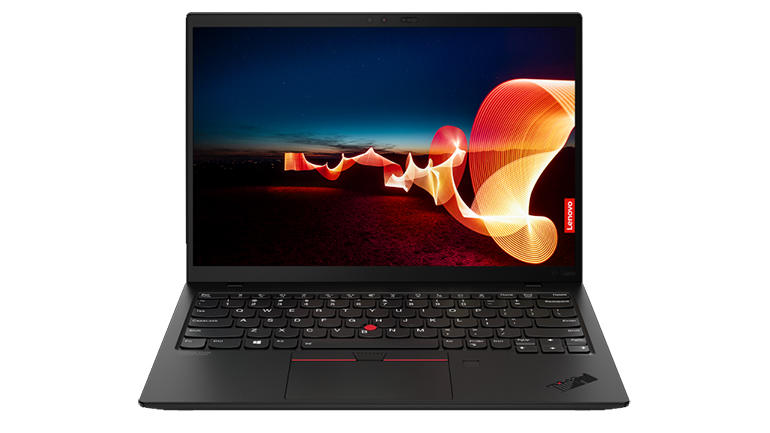Lenovo’s ThinkPad X1 range enjoys a longstanding reputation for excellence, and last year the company unveiled two intriguing new models: the innovative ThinkPad X1 Fold and the ultra-lightweight ThinkPad X1 Nano. Although the 13-inch X1 Nano is Lenovo’s lightest-ever ThinkPad, it’ll need to pack a productivity punch commensurate with its starting price of £1,739.99 (inc. VAT) in the UK, or $1,459.99 in the US.
Lenovo hasn’t sacrificed any of the signature ThinkPad X1 design features to achieve ultra-portability. The black chassis is emblazoned with the ThinkPad X1 logo on the outside, with the red dot over the ‘i’ illuminated when the laptop is in use, while the keyboard incorporates the familiar red TrackPoint. The chassis has a desktop footprint of just 292.8mm wide by 207.7mm deep, and it’s a mere 13.87mm thick. And while some ultraportables squeeze under the magic 1kg mark, the X1 Nano breezes through at 907g. I struggle to think of any 13-inch laptop I’ve reviewed that weighs less.
I was able to flex the lid a little, but it required enough effort for me to think this laptop will survive just fine in a bag or backpack without a protective sleeve. MIL-STD 810H certification reinforces that assessment.
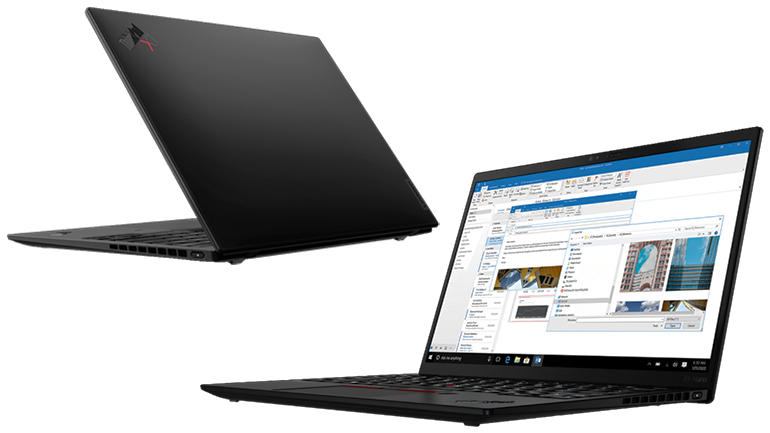
The 13-inch (16:10) ThinkPad X1 Nano is a 13.9mm-thick ultraportable with sub-1kg (907g) weight. It’s based on 11th-generation Intel Core i5 or i7 processors with up to 16GB of RAM and up to 1TB of SSD storage. Graphics are integrated (Intel Iris Xe) and mobile broadband is available as an option.
Images: Lenovo
This is not a 2-in-1 design, but the screen will hinge back to lie flat on a surface if required. The 13-inch screen sits in relatively small bezels, managing a 16:10 aspect ratio thanks to a smallish bottom bezel; even so, the compromise with ultraportable laptops like this is that the screen isn’t suitable for some kinds of tasks.
You can have two windows open side by side, but this feels like a bit of a squeeze, and working with expansive spreadsheets is something of a challenge, even with the 16:10 aspect ratio. The screen is also on the small side for giving presentations, although the 2K (2,160 by 1,350 pixels, 195.9ppi) IPS panel is sharp and bright (450 nits max), and colours look vibrant. The matte finish is welcome, and viewing angles are good (170°). My review sample’s screen was not touch-enabled: to get this you can either configure it as a customisation option (in the UK), or go for an off-the-shelf preconfigured model starting at £2,029.99 in the UK, or $1,519.99 in the US.
If you do use this laptop for presentations or, more likely, video calls, then you’ll appreciate the quality of the speakers. Lenovo has made room for a pair of speakers above the keyboard, and there are two more on the underside. They push out pretty good quality sound: there’s plenty of volume, with little or no distortion even at the upper end. Bass tones are weak, but that’s hardly a novelty in laptops, especially ultraportable ones.
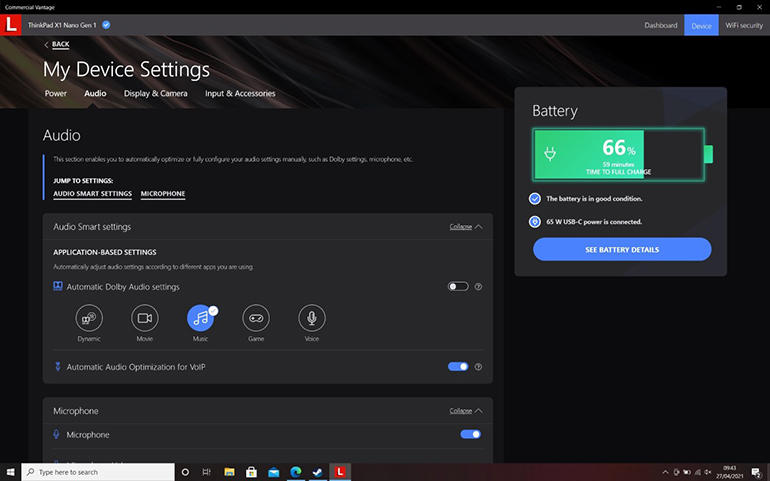

Commercial Vantage lets you manage device settings, such as selecting between different audio profiles.
Image: Sandra Vogel / ZDNet
Top ZDNET Reviews
Lenovo provides its Commercial Vantage application which, among other tweaks, bits of system information and settings options, lets you adjust audio settings, selecting between five profiles. These make a difference, and are worth experimenting with.
Above the screen my laptop had a webcam and IR camera for Windows Hello, the webcam benefitting from a ThinkShutter sliding cover. Neither the IR camera nor the ThinkShutter are present in all models.


The right side of the ThinkPad X1 Nano has just a power button and a cooling vent. On the opposite side you’ll find a pair of USB-C Thunderbolt 4 ports and a 3.5mm combo audio jack.
Image: Lenovo
The base of the ThinkPad X1 Nano is incredibly thin. This has ramifications for the range of ports and connectors on offer — and this might be a deal-breaker for many. There is nothing on the right edge except the power button and a cooling vent. On the left there’s a 3.5mm headphone/mic jack and a pair of USB-C Thunderbolt 4 ports, and that’s it. Also, one of the USB-C ports is in use when the laptop is charging. If you want HDMI, USB-A or wired Ethernet, for example, you’ll need adapters or a hub. Arguably, given the X1 Nano’s premium pricing, Lenovo should have bundled adapters for the most popular connector types.
One more thing: on the back of the chassis, if the particular configuration supports it, there’s a SIM slot for a mobile broadband connection.
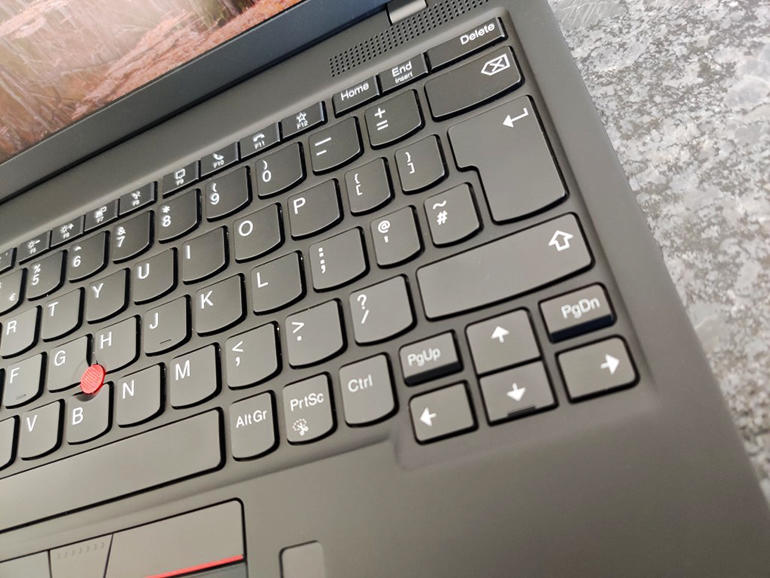

As you’d expect with a ThinkPad (even an ultraportable one like the X1 Nano), the keyboard delivers a satisfying typing experience.
Image: Sandra Vogel / ZDNet
Despite its thin chassis, the X1 Nano features the superb keyboard that’s so characteristic of Lenovo’s ThinkPads. The pot-bellied, slightly concave QWERTY keys are large and well-spaced, the Enter key is double height and wider than usual, while the Fn keys are large enough for stubby fingers to prod at. Lenovo has also found room for Call and End keys on the Fn row.
There’s plenty of key travel, the keys are well weighted, and I had no trouble touch-typing at my usual speed, albeit with a slightly louder ‘clack’ than I might have liked. There is a modicum of flex in the keyboard, but nothing to worry about.
Lenovo has, of course, fitted its TrackPoint between the G, H and B keys, and there are three buttons for use with it sitting above the touchpad. Both the TrackPoint and the touchpad are responsive and comfortable to use. The fingerprint sensor in the wrist rest is a little small, but that shouldn’t hamper it in use — and in any case, face login is a more convenient option.
There are four ThinkPad X1 Nano models, all of which run on 11th-generation Intel processors, listed on Lenovo’s UK website with prices ranging from £1,739.99 to £2,029.99 (inc. VAT). Two are ‘ready to ship’ and two are ‘build your own’ systems with various configuration options. My review sample was this £1,939.99 ready-to-ship model:
Intel Core i7-1160G7, Windows 10 Pro, 13-inch 2,160 x 1,350 pixel non-touch screen, Intel Iris Xe graphics, 16GB RAM, 512GB SSD, mobile broadband
Lenovo’s US website currently lists seven ready-to-ship models, starting at $1,459.99 and topping out at $2,231.40.
The ThinkPad X1 Nano is an Intel Evo-branded system, and as such promises at least all-day battery life (9+ hours). Lenovo claims up to 13 hours for the system’s 48WHr battery, although our tests suggest this is somewhat optimistic. In a typical three-hour work session involving writing into web apps, browsing and streaming music, the battery fell from 99% to 68% — a drop of 31%. That translates to a total of just under 10 hours – all-day battery life yes, but not the full 13 hours.
Rapid charging support is impressive. At one point when the battery got to 32%, I put it on charge and in 15 minutes it had gained 20%. The percentage gained falls as the battery fills, and after an hour of charging the battery was at 95%. Lenovo’s claim of 0% to 80% in an hour seems justified.
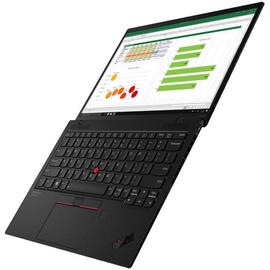

Conclusions
We are impressed with Lenovo’s latest ultraportable ThinkPad, although the 13-inch screen won’t suit every use case, and the paucity of ports and connectors may put some potential buyers off. The premium pricing might be prohibitive too. But with a starting weight of 907g, a robust chassis, an excellent keyboard, good display and audio subsystems, and options including touch screen and mobile broadband, the first-generation ThinkPad X1 Nano should hit the spot for a lot of mobile professionals.
RECENT AND RELATED CONTENT
Lenovo ThinkPad X1 Fold review: An innovative shape-shifting tablet/laptop
Windows 10: Lenovo unveils budget laptops and Chromebooks
We are still buying record numbers of PCs, and it doesn’t seem we will stop any time soon
What laptop should I buy? Windows 10 or MacOS, plus 10 more things to consider
Best laptop 2021: Mac, PC, and Chromebook top picks compared
Read more reviews
